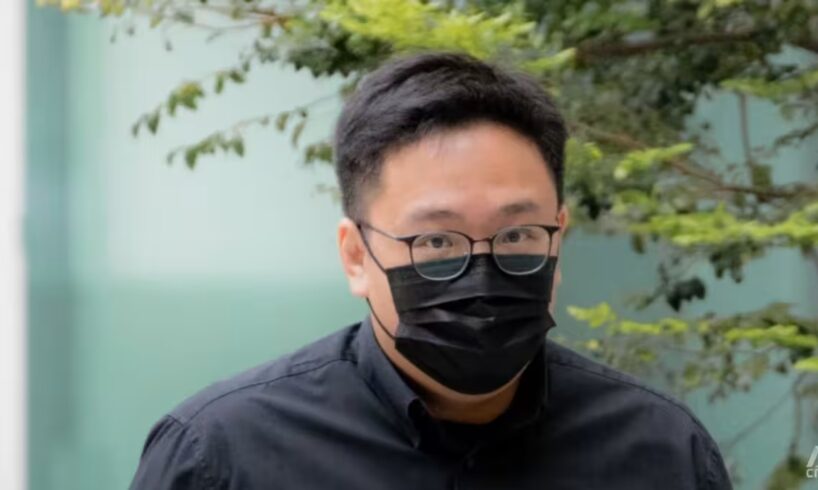
SINGAPORE: While out on bail for previous offences, an ex-insurance agent devised an elaborate scheme to scam his family, friends and others into handing over more than S$7 million (US$5.4 million) for investments.
Alvin Koo Jing You, 39, was jailed for seven years on Thursday (Oct 30) after he pleaded guilty to a charge of cheating.
Another charge of cheating, involving another investment scam where he cheated S$238,000 out of four victims, was taken into consideration for sentencing. One count of forgery and another charge under the Securities and Futures Act for purporting to carry out a fund management business without the necessary licence were also factored into his sentencing.
Koo had previously been jailed for selling bogus insurance policies to clients using forged documents while working as a financial advisor with Great Eastern Life Assurance. He was given two years and eight months’ jail on Jun 3, 2022 over this set of offences.
He was terminated by Great Eastern in early 2019 while being investigated for the earlier offences. He was charged for forgery offences in December 2019 and released on bail.
He was working as a Grab driver and private tutor while committing his new set of crimes.
PONZI-LIKE INVESTMENT SCHEME
Koo devised the scheme out of financial pressures.
He lied that he had a trading account with iFAST Financial, an investment platform, which allowed him to buy investment units at a discounted rate, and typically with guaranteed high interest rates of 10 per cent to 20 per cent.
He then sought funds from others to purchase units in investment funds on their behalf to generate returns.
After receiving their funds, Koo would send them letters of agreement stating the amount received, the specific fund invested in, the guaranteed interest rate, and the maturity date.
Koo did not have such a trading account. Instead, he used the funds to pay his own and his family’s expenses, and invest in stocks and shares via investment platform Tiger Brokers.
His investments were initially profitable and Koo could generate “returns” for his investors, which led them to transfer more funds to him for re-investment. These investors also referred others to him via word-of-mouth.
Between Oct 14, 2019 and Dec 31, 2021, Koo cheated nine victims on at least nine occasions. He deceived them into transferring nearly S$7,380,000 and paid them a total of around S$5,867,000 in “returns”.
Eventually, Koo’s investments resulted in losses and he was unable to pay investors on time. But he lied to his victims about the delayed payments.
He claimed that his bank accounts were frozen or subject to anti-money laundering checks. He then forged a letter of demand from a law firm on the release of funds, to lend credence to his lies.
The victims suffered losses of about S$1,512,530 and Koo only made restitution of S$1,000 to one victim.
They eventually discovered the ruse and made police reports against him.
On Feb 3, 2022, Koo lodged a police report admitting to his crimes.
The prosecution sought seven to eight years’ jail for Koo, while the defence argued for seven years’ jail.
“The accused was the sole perpetrator and beneficiary of his deception. He conceived of the entire plan, executed it on his own, and entirely enjoyed the financial benefits that arose from his criminality,” Deputy Public Prosecutor Natalie Chu said.
She pointed out that Koo had offended while on bail and was facing court proceedings for other offences.
Koo’s lawyer Narayanan Vijya Kumar asked the court to treat Koo as a first-time offender as he had admitted to all the offences from the start.
To cooperate with the authorities, Koo had asked his sister to send his spreadsheet of investor accounts to investigators, the defence lawyer said, noting that Koo made a police report on his own accord.
District Judge Lim Tse Haw said the total sum cheated was “staggering” and the total losses suffered by the victims “no less staggering”. Only a “miniscule” restitution of S$1,000 was made to one victim, the judge noted.
Judge Lim concurred with the prosecution’s point that Koo was the “sole author” of the scheme. He disagreed with the defence that Koo should be treated as a first offender.
However, he still accorded Koo a sentencing discount for his plea of guilt.
Cheating to dishonestly induce the delivery of property carries a jail term of up to 10 years and a fine.





